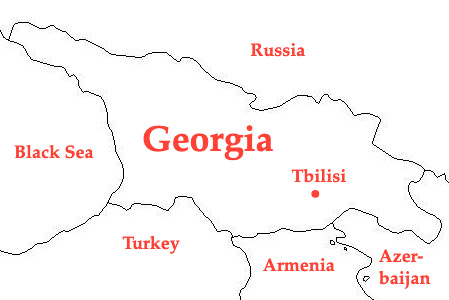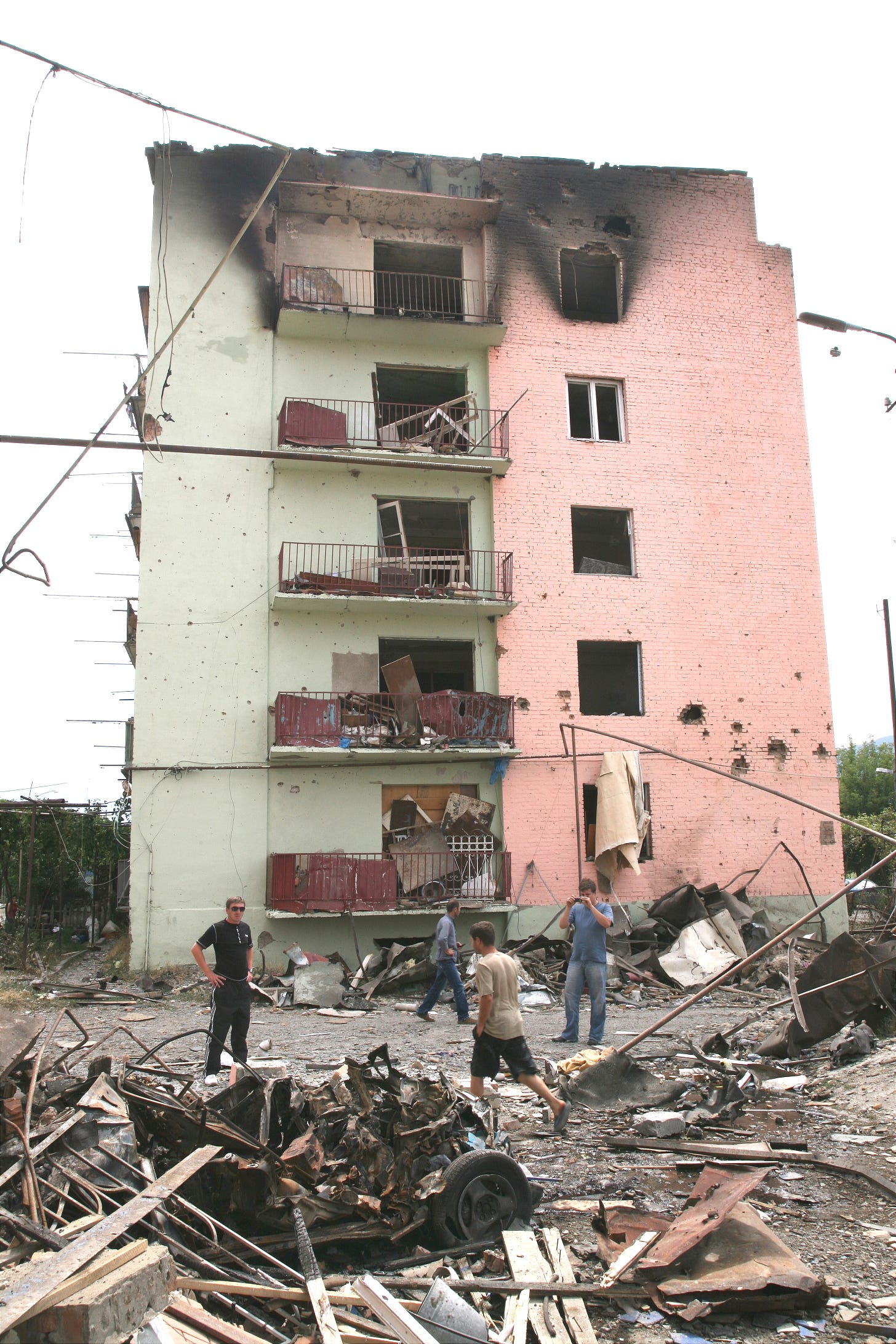Has Georgia Missed its End of History?
And how it became a parable about the dangers of billionaires in politics
Just before I get to my latest post, a big thank you to all my subscribers — but especially my paid ones! If you’re considering joining them, here’s a quick reminder that it costs just $0.22 (£0.17) a day for an annual subscription, or $0.26 (£0.20) at the monthly rate. Thank you!

It was a geopolitical romance, born of mutual admiration and toasted with Georgian wine, and it looked set to blossom into a lasting and deeper alliance.
Anxious to shed its past as a Russian and communist colony and stop it happening again, the Black Sea nation had embraced the West, and especially the United States.
Ronald Reagan already had national hero status for defying the Soviet “evil empire”. Then George W. Bush paid a visit, the first and only American president to do so — to say thank you to Georgia for sending its soldiers to help out in Iraq when most U.S. allies were staying well away. (The airport highway in the capital, Tbilisi, is still named after him.)
Its then leader, Mikhail Saakashvili, despatched more troops to fight and die alongside N.A.T.O forces in Afghanistan, hoping that would win credit for Georgia’s bid to gain full Western protection as a member of the alliance.
Even when the current Georgian Dream government unseated Saakashvili, it still appeared committed to this pro-Western path, enshrining future membership of both the N.A.T.O alliance and the European Union in a new constitution. It was hard to do otherwise, with a consistent large majority of Georgians in support.
For the West, Georgia’s attractions have been both political and economic. It offered a trade corridor to Asia and an alternative energy pipeline route, avoiding both Russia and Iran. Georgia also provided an eastern beachhead for the values the West preferred to define itself by — even as it trampled on them in other parts of the world.
Indeed, one of Georgia’s most ardent U.S. admirers, and a frequent visitor, has been none other than Francis Fukuyama. For a while at least, it did look like it was on track to ‘end its history’ as a bastion of Western-style liberal democracy on the Black Sea.
At best, Georgia risks becoming an illiberal Hungarian-style ‘managed democracy’; at worst, an authoritarian one-party state.
But roll forward to 2024 and those hopes are fading like a receding tide. And ahead of this Saturday’s elections, Georgia and the West are on the brink of a lasting break-up.
Over the past two years, the ruling Georgian Dream has turned openly hostile, preferring to embrace the country’s historic oppressor, Russia, even though its forces occupy a fifth of Georgian territory.
It has launched a draconian crackdown against anyone it deems a critic, using violence, intimidation and divisive legal measures targeting civil society and the LGBTQI community, straight out of Vladimir Putin’s playbook in Russia.
If the Georgian Dream wins a majority this weekend, it has vowed to ban the main pro-Western opposition parties. At best, Georgia risks becoming an illiberal Hungarian-style ‘managed democracy’; at worst, an authoritarian one-party state.
Washington has already cut millions of dollars in aid, cancelled joint military exercises and imposed selective sanctions. Brussels has suspended Georgia’s E.U. membership application; next it may end the visa-free access to Europe that Georgians currently enjoy, which would signal a decisive split.
Meanwhile, Russia has lifted visa restrictions for Georgians and an influx of Russian money has helped the economy boom.
So what happened? How did this two-decade romance go sour?
Keep reading with a 7-day free trial
Subscribe to Sketchy Reports to keep reading this post and get 7 days of free access to the full post archives.






